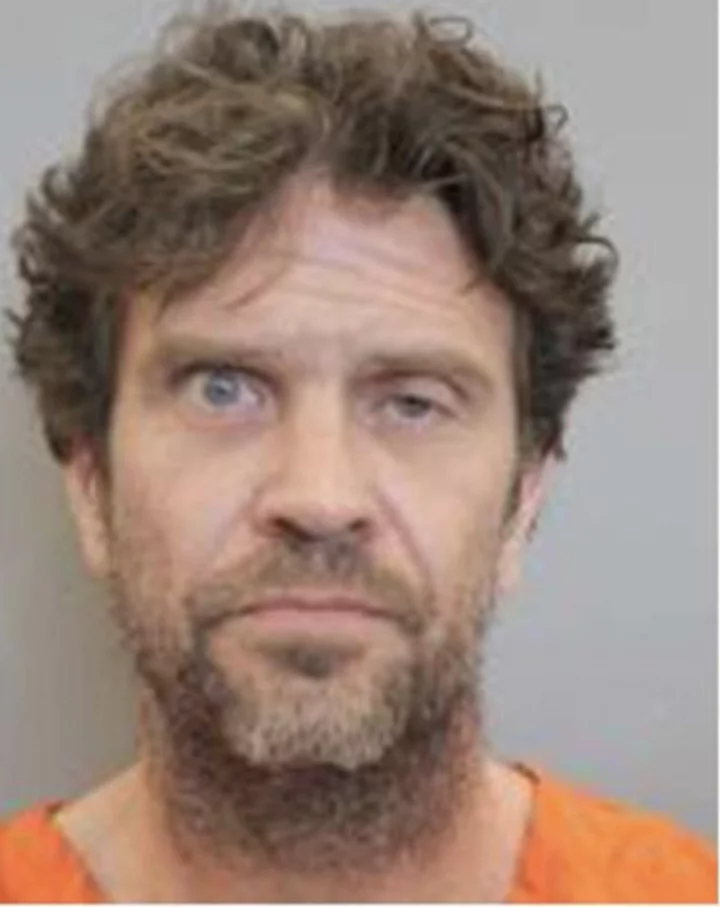
Man arrested for mutilating legs and paws of living puppies
A Texas man has been arrested for allegedly mutilating a living dog and her puppies. Justin Belton, 44, has been charged with four counts of cruelty to non-livestock animals and is currently being held at the Harris County Jail. According to court filings, authorities were first alerted to the alleged crimes after Mr Belton arrived at a local animal shelter on Saturday with six puppies that had been abused. Four of the puppies had their limbs cut off with what appeared to be a tool. One of the puppies’ injuries were so severe that it had to be put down, while its litter mates “were left crying in pain,” the filings obtained by ABC state. Mr Belton was arrested at the animal hospital and when investigators searched his home, they found the puppies’ mother already dead. Other dogs found at the residence were also in unsanitary and confined conditions. The alleged animal killer first told authorities that it was a neighbour who hurt the puppies and then changed his account, saying he put the dogs in a cage and they hurt themselves. Investigators noted in court documents that the injuries did not appear to be inflicted by other animals. Neighbours told law enforcement that they heard barking noises in the early morning hours of Saturday, and later heard Mr Belton “yelling and swearing.” “Very horrific, super disturbing, not just for our staff, but also for the police officers that arrived,” Dr Gabriela Vega, a veterinarian who was working at Sunset 24/7 Animal Hospital when the puppies were brought in, told ABC13. Four puppies are expected to survive, she told the network. “Some of them may only have three legs, but that’s never stopped a dog before, so I expect them to have a pretty good life moving forward,” Dr Vega said. Mr Belton has a previous criminal history. A harassment case against him was dismissed in 2016, and separate stalking charges were adjudicated four years before. The suspect is being held on $100,000 bond. According to ABC, his arraignment hearing was postponed earlier this week because the court could not find a public defender willing to take his case. Read More Known to child welfare, a violent father and a child missing for two years: What happened to Harmony Montgomery? Schoolboy, 10, stuns council meeting with stirring speech on racism he has suffered A decade after outcry, SeaWorld launches orca-free park in UAE, its first venture outside the US
2023-06-23 02:59
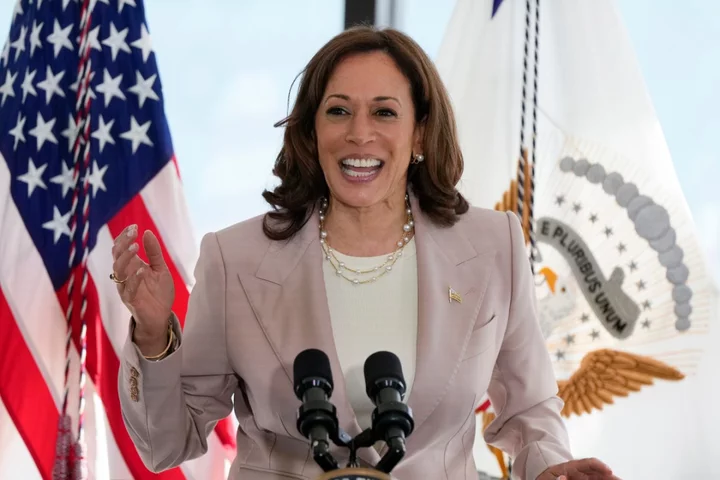
Kamala Harris says goddaughter’s friends are choosing college towns on abortion legalisation
Vice President Kamala Harris has said she knows of young people choosing which college they want to attend based on how restrictive the abortion laws are in that state. Commenting in an interview for the Roe v Wade retrospective on MSNBC’s The ReidOut, Ms Harris said her goddaughter told her that her friends wanted to attend schools in states where there was more freedom in terms of reproductive rights. Ms Harris told the roundtable: “When the decision came down she told me ‘Do you know what’s happening? My friends – whatever gender – are starting to make decisions about where they will actually go to college depending on what’s happening in that state.’” “Because of course, if you look at it, I think the number is something like 23 million women of reproductive age live in states that have banned abortion, and what that is gonna mean for those 23 million, for the myriad of health care issues that are at stake ... It’s having a real impact on all types of decisions people make,” she added. The show took a look back at the decision to overturn the landmark Roe v Wade decision that legalised abortion in the US in 1973 when the Supreme Court ruled that “unduly restrictive state regulation of abortion is unconstitutional”. In 2022, the Supreme Court, packed with three Trump-era appointees, overturned Roe v Wade and returned decisions on abortion freedom to the states. Since then, a number of states have introduced effective abortion bans that limit the procedure to the very early days of pregnancy – often before women are aware they are pregnant. Some states have also criminalised assisting women with accessing abortion, and limited abortion to cases of rape or incest. Ms Harris said that the Supreme Court’s decision last year had infringed on women’s rights. “The idea that the highest court in our land just did that and rolled back rights that had been recognized was incredibly shocking,” she said on MSNBC. She said that after she learned the news of the ruling, she called her husband and shared some “words not meant for television at this moment”. Ms Harris went on to say that the ruling means that some have to “suffer in silence,” the thought of which made her “angry and sad”. Read More Where abortion laws stand in every state a year after the Supreme Court overturned Roe A year after fall of Roe, 25 million women live in states with abortion bans or tighter restrictions Judge to weigh suspending Wyoming's first-in-the-nation ban on abortion pills US prepares for potential end of Roe v Wade - live When will there be a Roe v Wade decision? Why these prosecutors are refusing to enforce anti-abortion laws
2023-06-22 23:58
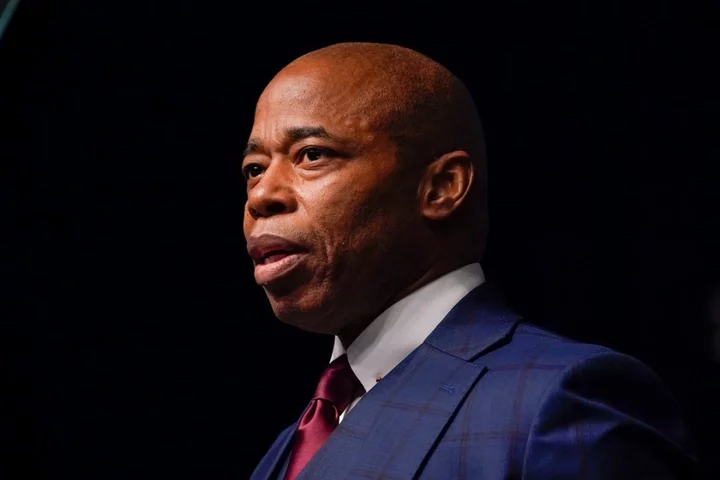
NYC mayor Eric Adams signs bill protecting gender-affirming care
An executive order designed to protect people providing and receiving gender-affirming care was signed by New York City mayor Eric Adams on Monday. Executive Order 32, signed in celebration of Pride, prevents the use of city resources to investigate, detain or prosecute anyone providing or receiving care. It’s a measure similar to one cities have taken to try to protect abortion rights after the reversal of Roe v Wade. New York as a state has not passed any restrictions on gender-affirming care for minors, which remains legal across the Northeast. But Mr Adams’s measure comes at a time when the transgender community has been under a sustained attack from Republican party officials who have introduced more than 400 bills in state legislatures targeting LGBT+ people so far this year. Twenty states have already passed laws limiting or banning gender-affirming care for minors, with more states actively considering bans. “As states across the nation continue their onslaught of attacks on our LGBT+ neighbors, New York City is doing what we have always done — standing up for justice and against discrimination,” Mr Adams said in a statement on the executive action. “This executive order reaffirms the fact that hate has no place in our city and that all people deserve the right to gender-affirming care and protection against prosecution for being who they are.” The spirit of Mr Adams’s order is aligned with advisories from a number of major medical associations like the American Medical Association and the American Academy of Child and Adolescent Psychiatry, which have said that gender-affirming care is safe and can be lifesaving. The number of people who transition and express regret about it later is believed to be at or less than one percent. For some of them, the regret was temporary. Some see attacks on gender-affirming care for children as part of a broader assault on the bodily autonomy of people who are not cisgender men. A number of the states that have passed bans on gender-affirming care have also passed limits or effective bans on abortion care. Some people in such states have been forced to move to other areas without such restrictions. New York is a place of particular import for the LGBT+ movement, as it is the site of the Stonewall riot and one of the country’s largest and most visible LGBT+ communities. It’s annual Pride parade is set to take place on 25 June. Read More Republicans in Oregon Senate end six-week walkout that blocked bills on abortion, trans health care Texas family moves so trans teen can escape anti-LGTBQ laws: ‘I’d rather be out than dead’ US prepares for potential end of Roe v Wade - live When will there be a Roe v Wade decision? Why these prosecutors are refusing to enforce anti-abortion laws
2023-06-16 13:56
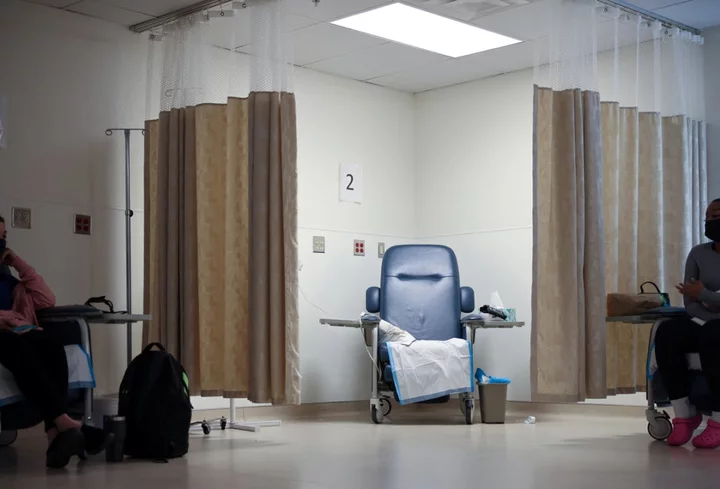
Oklahoma’s Supreme Court struck down two abortion bans. But a 113-year-old law is severely restricting access
Weeks before the US Supreme Court overturned Roe v Wade last year, Oklahoma’s Republican governor vowed to “outlaw” abortion in the state entirely, and pledged to sign any legislation that promised to do just that. Governor Kevin Stitt signed several anti-abortion bills into law, including a measure that outlaws abortion at roughly six weeks of pregnancy, and another banning all abortions with exceptions only to save the patient’s life in a medical emergency or if the pregnancy is the result of rape, sexual assault or incest that has been reported to law enforcement. On 31 May, the highest court in the state struck down both of them. But abortion access remains out of reach for most patients in the state, after that same court upheld a far-reaching abortion ban from more than 100 years ago earlier this year. A state law from 1910 makes it a felony punishable up to five years in prison for anyone to perform or help someone seek an abortion unless to save the patient’s life. “This ruling, while providing clarity in emergency situations, does not change the landscape of care significantly,” Emily Wales, president and CEO of Planned Parenthood Great Plains, said in a statement. Oklahoma was the first state in the US to successfully outlaw abortion despite a constitutional right to abortion care that was affirmed by Roe v Wade. But in March, the state’s Supreme Court ruled that the state’s constitution “creates an inherent right of a pregnant woman to terminate a pregnancy when necessary to preserve her life,” though the court declined to weigh in on whether the constitution protects abortion access in other circumstances. The court also ruled that doctors should be able to use their own medical judgment to determine whether to provide an abortion when a patient’s life is at risk “due to the pregnancy itself or due to a medical condition that the woman is either currently suffering from or likely to suffer from during the pregnancy.” But it also preserved the 1910 law, a 113-year-old ban on abortion care that threatens providers with prison. The court’s decision on 31 May reaffirmed its decision recognising a right to abortion care in life-threatening cases, and struck down two the overlapping bans. In the months after the Supreme Court’s decision in Dobbs v Jackson Women’s Health Organization, which struck down a constitutional right to abortion care, clinics in Oklahoma have been forced to close, and patients have traveled thousands of miles for legal abortion care in a region surrounded by states where abortion is severely restricted or effectively outlawed. Even in cases of emergencies, there appears to be no hospital in Oklahoma that provides “clear, consistent policies for emergency obstetric care to pregnant patients,” according to an April report from Physicians for Human Rights, Oklahoma Call for Reproductive Justice and the Center for Reproductive Rights. Oklahoma hospitals “offered opaque, contradictory, and incorrect information about abortion availability and approval processes in obstetric emergencies, as well as little reassurance that clinicians’ medical judgment and pregnant patients’ needs would be prioritized,” according to the report. Only two out of 24 hospitals described providing legal support for providers in such situations, and representatives for three hospitals claimed their facilities do not provide abortions at all, the report found. Abortion rights advocates welcomed the court’s decision on 31 May, which abortion rights advocates said will at least allow doctors to clearly rely on their own medical judgment to provide care when a patient’s life is in jeopardy. “After months of uncertainty and chaos, Oklahomans should finally be able to access the life-saving care they need in their home state,” according to Dr Alan Braid, an abortion provider and plaintiff in the case challenging the overlapping abortion bans. “Heartbreakingly, we were forced to close our Tulsa clinic due to Oklahoma’s abortion bans, but I will continue to serve patients in the region at clinics in Illinois and New Mexico,” he added. “While we are relieved the court upheld the right to abortion in medical emergencies, this does not diminish the fact that care remains out of reach for the majority of Oklahomans,” according to Ms Wales. Following the state Supreme Court decision on 31 May, Oklahoma Attorney General Gentner Drummond clarified that “except for certain circumstances outlined in that statute, abortion is still unlawful in the state of Oklahoma” because of the 1910 law. Governor Stitt accused the court of using “activism to create a right to an abortion in Oklahoma.” “This court has once more over-involved itself in the state’s democratic process, and has interceded to undo legislation created by the will of the people,” he said in a statement. Within the last year, more than a dozen states – including most of the entire US South – have outlawed abortion care for most pregnancies. Read More ACLU sues Nebraska over combined law targeting abortion and gender-affirming care: ‘Egregious overreach’ South Carolina judge halts six-week abortion ban as state Supreme Court set to review new law Doctor who provided abortion care to 10-year-old rape survivor reprimanded in case that drew national scrutiny Anti-abortion laws harm patients facing dangerous and life-threatening complications, report finds
2023-06-01 07:15
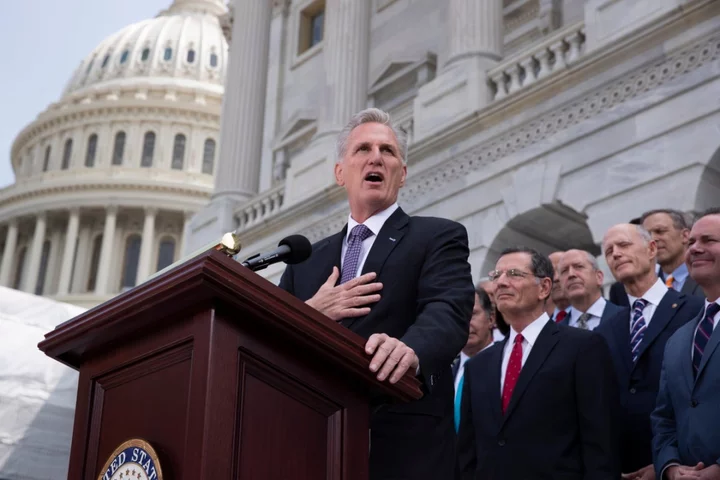
Anti-poverty groups and progressives blast work requirements for aid to poor Americans in debt ceiling deal
An agreement to raise the debt ceiling would expand the age bracket for eligibility for food assistance, adding a punitive and unnecessary barrier for poor Americans with only negligible savings for the federal government, advocacy groups have warned. Most Americans with low or no incomes who qualify for the Supplemental Nutrition Assistance Program (SNAP) must comply with certain work requirements to be eligible to receive funds to help pay for groceries. But under a deal struck between President Joe Biden and Republican House Speaker Kevin McCarthy, adults up to age 54 would be required to show proof of work. Republican lawmakers have pushed for years to expand those work requirements, but anti-poverty advocacy groups and progressives have argued that adding any such limitations to critical aid will only deepen hunger and poverty in the US, pointing to Congress’ own research showing that work requirements don’t appear to have any measurable effect on employment. “SNAP is a symptom of shortcomings in the economy,” Luis Guardia, president of the Food Research & Action Center, said in a statement. “Cutting off food for people unless they document sufficient hours of work does not improve their chances to secure family-sustaining wages, but does increase their food hardship.” In simple terms, a congressional vote to raise the debt ceiling would allow the US Department of Treasury to continue borrowing money to pay the country’s bills. But Republican lawmakers have leveraged the often routine though critical vote process to advance their agenda, as the nation stares down an imminent deadline that risks putting the US in default. “While we all recognize the catastrophic impact of a default, we are deeply disappointed that this deal includes cuts that further harm people experiencing hunger and poverty,” said Lisa Davis, senior vice president of Share Our Strength and its No Kid Hungry campaign. “As a whole, the punitive and ineffective SNAP changes included in this bill will save the US very little money,” she added. “They will also do nothing to remove barriers to make employment more attainable or available for those they impact. Nor are they based on evidence or experience. Instead, they are born from and rely on pervasive myths and misperceptions about SNAP and the people who benefit from the program and stand only to restrict food assistance for some Americans.” Republicans hold a fragile majority in the House of Representatives, where Mr McCarthy is relying on a slim margin of support from a far-right caucus that argues the cuts don’t go far enough. Meanwhile, progressive lawmakers – frustrated with the GOP’s “hostage crisis” process for negotiating a debt deal – strenuously object to stiffening work requirements and cuts to aid programs on which millions of Americans rely. Democratic US Rep Pramila Jayapal, who chairs the Congressional Progressive Caucus, will not support the debt plan, pointing to members who are “deeply, deeply concerned” about the proposals and the way in which Republicans threatened to steer the US into default to get GOP concessions. On a call with reporters on 30 May, Ms Jayapal compared Republicans’ threats on the debt limit to the party’s attempts to undermine the outcome of the 2020 presidential election. “We cannot have these constitutional obligations, including the very clear mandate to pay the country’s debts, as well as of course to ratify an election of a president that was voted upon by the democratic process ... taken hostage,” she said. The Biden administration has touted some new proposals in the deal as a victory: Military veterans, young people who have aged out of foster care, and people experiencing homelessness would be exempt from the SNAP work requirements. But “burdensome reporting requirements and bureaucratic red tape leave little confidence that this will outweigh the harmful expansion of these requirements for others in this category,” Ms Davis said in a statement. The nation’s largest food assistance program supported more than 42 million people in February, according to the latest data from the US Department of Agriculture. More than 65 per cent of SNAP recipients are in families with children, 36 per cent are in families with members who are older or disabled adults, and 41 per cent are in families that work, according to the Center on Budget and Policy Priorities. SNAP requires “able-bodied adults” without dependents to work or join job training programs for at least 80 hours a month to receive more than three months of benefits over three years. “SNAP’s primary objective is to help people put food on the table; any attempt to turn it into an employment program – particularly when extensive research shows that work requirements actually make it much harder, not easier, for people to find and keep jobs – runs contrary to the program’s mission and intent,” said Eric Mitchell, executive director of the Alliance to End Hunger. “In a time when food insecurity is rising and food prices remain high, we should be expanding our nation’s social safety net, not restricting it,” he added. The maximum monthly SNAP benefit for an individual is $281, “which makes the 80-hour work program route effectively the same as a job that pays $3.51 per hour,” or less than half the federal minimum hourly wage of $7.25, People Policy Project’s Matt Bruenig noted. Progressive lawmakers and advocacy groups have also lambasted the debt deal for tying the fate of federal programmes for some of the poorest Americans to a politically volatile debate. What happens for someone over 50 years old who is unable to work and is cut off from assistance? How can they navigate a difficult labour market rife with age discrimination? Anti-poverty advocates and critics of so-called “means-testing” structures around receiving government aid have argued that adding additional burdens for work requirements underscores their futility. “We shouldn’t be playing politics with programs that help Americans meet their basic needs,” Ms Davis said. Anti-hunger groups have also objected to other changes to other assistance programs for lower-income-earning Americans, including changes to a federal cash assistance program that House Republicans had previously threatened with drastic cuts. “Hungry people cannot wait – but now they will need to wait even longer,” Mr Garcia said. “Our leaders should be creating pathways to progress, not pulling out the rug from those trying to get back on their feet.” Read More Debt ceiling vote – live: AOC, Boebert and Gaetz join growing opposition as Biden-McCarthy deal faces full House vote today What’s in the cliffhanger deal struck by Biden and McCarthy to raise the debt limit? House Republican majority cut by one after shock resignation of congressman
2023-06-01 00:48
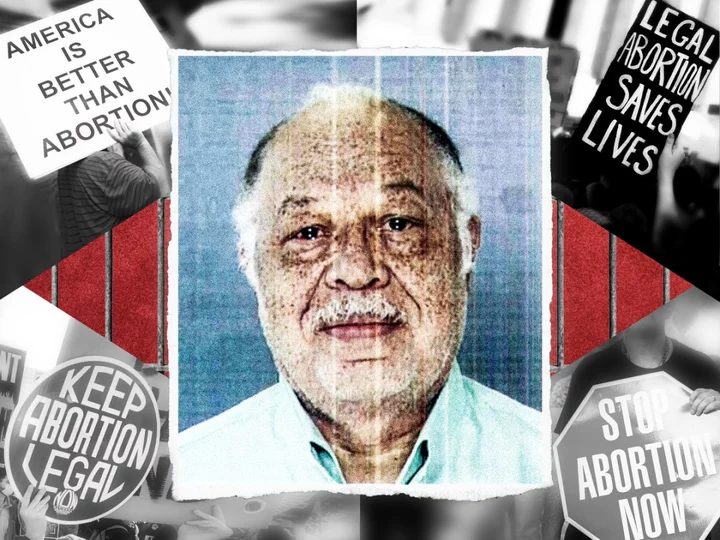
Kermit Gosnell butchered women and babies for decades. The anti-abortion movement weaponised his horrors
Robyn Reid was just 15 years old when a doctor fought her down onto a table, ripped off her clothes, tied her arms and legs with restraints and forced her to undergo an abortion against her will. It was 31 January 1996, and the teenager had spent the last three months hiding her pregnancy from her grandparents as she prepared for a new life raising her baby. When they found out, Robyn’s grandmother had driven her from their home in New Jersey to a notorious west Philadelphia clinic nicknamed “Club Abortion”. “I was determined to keep the baby,” Robyn, now 40, tells The Independent. “My plan was to go to the doctor and refuse to have the abortion as I thought ‘no one can make me.’ My 15-year-old brain thought there wasn’t even a chance that would happen to me. “Inside the clinic, I remember being in the room and the doctor walked in and said: ‘Why aren’t you undressed?’ When I told him ‘I’m not having an abortion’, he shouted: ‘I don’t have time for this s***.’ “He then walked out of the room and came back in with my grandmother… Then he started pulling my clothes off.” Robyn, a small 90-pound teenager, fought with all her strength. “I was fighting him as he pulled my clothes off and held me down,” she says. “He was tying my arms down with straps and, then every time he tied my legs down, I managed to pull my arms free. It went on and on like that – it was a physical fight.” In the end, she could fight no more. “He overpowered me to the point that I could no longer move. I remember looking up at the light and saying to myself: ‘Just don’t go to sleep’. Then he gave me a needle,” she says. “The next thing I knew, I woke up 12 hours later and I was back home in New Jersey and was no longer pregnant.” Sobbing, she adds: “I’ll never forget that day.” It would be years before Robyn would learn that she was one of countless women given illegal or dangerous abortions at the hands of a man who some would describe as a “butcher of women”, others as “one of America’s biggest serial killers”. More than 14 years passed before the truth of Kermit Gosnell’s “house of horrors” was finally exposed to the world. ‘House of horrors’ On 18 February 2010, the FBI carried out a raid on the Women’s Medical Society on Lancaster Avenue, west Philadelphia, as part of an investigation into the illegal sale of prescription drugs. On entering the clinic, the federal agents had no idea of the extent of the horrors they would find inside. Semi-conscious and heavily-sedated women lay on dirty recliners and bloodstained blankets moaning in pain. A mix of blood and cat feces covered the floors – the latter from the flea-ridden animals roaming the space where women were undergoing medical procedures. Jars up jars of severed baby feet were stacked inside the refrigerators. By the end of the search, authorities had found 47 aborted fetuses and infants stored at the facility – including one late-term infant frozen inside a water bottle. The dangerous conditions and unspeakable scenes were only the start. In the four decades prior, Gosnell had been running his “house of horrors” clinic in a deprived neighbourhood in west Philadelphia. It was a place where poor, migrant, minority ethnic, and vulnerable women could pay cash to have late-term abortions well after Pennsylvania’s legal limit of 24 weeks. A place for women who – due to poverty, lack of healthcare and other factors driven by inequality – ultimately had nowhere else to turn. Or for women and young girls like Robyn who had their right to choose taken away from them with no questions asked. In many cases, it wasn’t even an abortion clinic - but rather an infanticide clinic where babies were delivered at near-full term and then murdered. While Robyn’s forced abortion was within the legal timeframe in the state of Pennsylvania, countless other women underwent the procedure at Gosnell’s clinic in the seventh, eighth and even ninth month of pregnancy. These babies were delivered alive at full term, breathing and moving. It was then that Gosnell – and sometimes colleagues who had zero medical training – carried out what he called “ensuring fetal demise” by a procedure he named “snipping”. This “procedure” involved sticking a pair of scissors into the back of the newborn baby’s neck and cutting the spinal cord, severing the brain from the body. It was murder. As the 2011 grand jury report investigating Gosnell’s actions states: “This case is about a doctor who killed babies and endangered women. What we mean is that he regularly and illegally delivered live, viable babies in the third trimester of pregnancy – and then murdered these newborns by severing their spinal cords with scissors. “The medical practice by which he carried out this business was a filthy fraud in which he overdosed his patients with dangerous drugs, spread venereal disease among them with infected instruments, perforated their wombs and bowels – and, on at least two occasions, caused their deaths.” And for years and years, Gosnell got away with it. ‘Butcher of women’ It’s impossible to know exactly how many babies or women died at Gosnell’s hands. Baby Boy A – as he was referred to in the grand jury report and at trial – was around six pounds when Gosnell induced the labour of his 17-year-old mother at 30 weeks of pregnancy and he was born breathing and moving. Gosnell “snipped” the baby’s spine and dumped him in a shoe box, joking that the baby was so big that he could “walk me to the bus stop”. Baby Boy B was at least in week 28 of pregnancy when he was aborted and his body placed in a one-gallon spring-water bottle and frozen. Baby C lived and breathed for about 20 minutes before one of Gosnell’s workers “snipped” their neck. Baby D was born in a toilet and was moving when they was killed. At least two women are also known to have died. The first woman, Semika Shaw, died of sepsis in 2002 after Gosnell botched the abortion procedure and perforated her uterus. She was 22. The second fatality was Karnamaya Mongar, a 41-year-old refugee from Bhutan who had recently arrived in the US from a resettlement camp and gone to the clinic for an abortion in 2009. She was given an unrecorded amount of the dangerous – but cheap – sedative Demarol. When she stopped breathing, there was no working defibrillator to try to get her heart working again. Instead of immediately calling 911 and performing life-saving measures on Mongar, clinic staff tried to cover up what was happening by staging the scene to appear as though she had been undergoing a safe, legal procedure. By the time she got proper medical attention, it was too late. Her cause of death was found to be an overdose of sedatives. On 15 May 2013 – three years after the FBI raid – Gosnell was finally convicted over some of the deaths and horrifying goings-on at his clinic. He was found guilty of three counts of first-degree murder in the deaths of Babies A, C and D, involuntary manslaughter in Mongar’s death, 24 counts of performing an abortion beyond the 24-week limit and numerous other charges. He is currently serving three life sentences behind bars in State Correctional Institution Huntingdon. Eight other clinic workers including Gosnell’s wife were also convicted on various charges – some of them of murder. Battle over reproductive rights There’s no doubt that the case of Kermit Gosnell is a real life horror story. But, it’s also a key chapter in the wider story of America’s battle over reproductive rights. For anti-abortion activists, groups and politicians, the case became one of their strongest weapons to push for abortion bans, shorter term limits and tighter restrictions on abortion clinics. Following his arrest, the name Gosnell instantly became fodder for the right to argue that tougher laws and fewer abortion rights was what the country needed. When he introduced a resolution calling for Congress to investigate abortion clinics in 2013, Republican Senator Mike Lee called Gosnell’s case a “wake-up call” for the nation. Texas Governor Rick Perry meanwhile described Gosnell’s case as “the awakening of a sleeping giant in this country to protect babies”. And in many cases, the rhetoric appeared to work. By the time Gosnell was convicted in May 2013, stricter abortion laws had already been rolled out in several states, with Arkansas banning most abortions after 12 weeks and North Dakota after six. Tougher laws were also making their ways through the legislatures of other states including North Carolina, Texas, Wisconsin and Ohio. What Gosnell’s case had done was give the anti-abortion movement “credibility” in its efforts to “demonise” abortion doctors, clinics and – ultimately – abortion rights altogether, says Mary Ziegler, UC Davis Martin Luther King Jr Professor of Law and an expert in the politics of reproduction and healthcare in the US. “His case lent credibility to the anti-abortion arguments of the era,” she tells The Independent. “It wasn’t the case that what he did changed how anti-abortion groups were arguing… Before this case, they were already trying to demonise anti-abortion doctors. But until then, it had been easier to dismiss what they were saying as a political strategy.” For years, the anti-abortion movement had framed abortion as murder and pro-choice advocates as people who supported “killing babies”, despite late-term abortions already being illegal. In Gosnell, the anti-abortion movement for the first time had a real-life figure that they could point to as an example to support this argument. “Kermit Gosnell made it easy for anti-abortion groups to push this narrative,” says Professor Ziegler. “After Kermit Gosnell was discovered, these anti-abortion groups said ‘this is representative of what all abortion doctors are like and of what abortion in general is like’. “Which of course wasn’t true but it made it easier for them to demonise abortion providers more than in the past as they now had a prominent example. This was no longer hypothetical. “So it was framed that, in order to prevent Kermit Gosnell from happening again there was a need to shut down abortion and abortion clinics. The idea that the next Kermit Gosnell could be out there lent credibility to this argument.” She adds: “The movement needed villains to tell the story and in modern history he was the most famous.” The clinic itself became and continues to be used as a physical reminder of the horrors of what went on inside. Indeed in 2019, anti-abortion groups sought to buy the clinic on Lancaster Avenue and turn it into a crisis pregnancy centre, reported local outlet WHYY. The efforts appear to have stalled as four years later the looming building is still owned by Gosnell himself – with the 82-year-old racking up tax bills on the property from prison. There’s also the regular memorials left by anti-abortion advocates at the Laurel Hill Cemetery, which became the burial site of the 47 fetus and infant remains found in the clinic which became known as the “Gosnell babies”. The forgotten stories Meanwhile, what was entirely lost from the story was the women – and why they had ended up at the inhumane clinic on Lancaster Avenue in the first place. The clinic largely served a poor neighbourhood of west Philadelphia with most patients being low-income, migrant or ethnic minority women. They didn’t have access to quality healthcare. Paying cash for what was essentially a backstreet abortion was the only option available to them in their current predicaments. “These were people who were shut out of adequate healthcare and were not able to get what they needed from society,” says Professor Ziegler. “There are gaps in the healthcare system such that some people were so desperate to turn to that – but very quickly that dimension of the Kermit Gosnell story vanished. “It became just that abortion providers are butchers and they’re in it for the money – and this being a story about inequality in America just dropped off… the women were lost from the debate.” Robyn perhaps proves this when she tells The Independent that of the multiple times she has been asked to share her story about what happened to her at Gosnell’s clinic, until now no one has ever asked her where she personally stands in the abortion debate. The experience at Gosnell’s “house of horrors” has left her with complex views. “I think in one way I didn’t have a right to choose – my choice was taken away from me that day. So I don’t want to take that choice away from other women,” she says. “But going through that also made me want to stick with more conservative values as in a world where abortion doesn’t exist this wouldn’t have happened.” She adds: “I am more in support of anti-abortion laws than not… but I also believe in a women’s right to choose… I don’t think they are opposites, you can believe in the right to choose but also in the right to life.” West Philadelphia’s worst kept secret As well as the voices of women like Robyn, something else was also lost from the story of Gosnell’s “house of horrors”: the irony that what he did was already illegal. The reality is that abortion bans would not have stopped Gosnell because he was already knowingly breaking the law. Gosnell knew what he was doing was wrong, but didn’t care. And, disturbingly, it appears that authorities also knew at least in part what was going on as well. Over the years, several complaints had been made about Gosnell and the clinic’s reputation as an “abortion mill” had become the worst kept secret in the city – and yet Gosnell continued to work unchecked for decades. When Gosnell’s clinic – and what went on inside – became national news in 2010, one of the biggest questions asked was, how he had gotten away with it? The findings of the grand jury report revealed a disturbing lack of enforcement and willingness to turn a blind eye by multiple government agencies. Pennsylvania’s Department of Health, which was responsible for auditing the clinic, had information which should have led to its shutdown but it failed to act, the grand jury found. In 1993, the agency had stopped carrying out inspections at abortion clinics – a move the grand jury report blamed on “political reasons” when the pro-choice Republican Governor Tom Ridge took office. Yet, even though the inspections stopped, the alarm was still raised through several complaints sent to the department from other medical centres, from lawyers representing women, and even from an insurance company representing the 22-year-old victim who died on his operating table. The grand jury report outlines one principle reason for why the issues were ignored time and again. “Bureaucratic inertia is not exactly news. We understand that. But we think this was something more,” it reads. “We think the reason no one acted is because the women in question were poor and of color, because the victims were infants without identities, and because the subject was the political football of abortion.” Historically, Black and Hispanic women face greater barriers to access to all aspects of reproductive healthcare. Hispanic and Black women face a disproportionately higher risk of unintended pregnancy, according to research in Contraception and Reproductive Medicine journal. Black women make up 40 per cent of abortion patients – the largest share of all ethnic groups – while also having a maternal mortality rate 2.6 times higher than white women, CDC data shows. Several other systemic barriers also often exist, such as lack of heath insurance, lower income to afford quality healthcare – not to mention longstanding discrimination in the healthcare industry towards Black women. The role that race and inequality played is something that’s not lost on Robyn, who is Black but grew up in a white, suburban middle-class neighbourhood. “One of the things it’s put in perspective for me is how, being a Black person, it seems like our abortions are not as important,” she says. “I am Black but grew up in a white neighbourhood and there were always protests outside the abortion clinics there. “There was no one protesting outside Gosnell’s clinic. That makes me a little angry like ‘where were you guys when the doctor violated me?’ “It’s a bit like no one cares if you go and have an abortion in the slums but not here in our nice white neighbourhood.” Now she is older and Gosnell’s crimes have come to light, Robyn says she believes it was Gosnell’s reputation which caused her grandmother to take her there. “I lived in New Jersey where there were multiple abortion clinics. I think he was purposely chosen because he had a bad reputation that if you went there any hour of the day, no matter how far along or in what circumstances he would get the job done,” she says. The grand jury report revealed that – while the clinic was depraved all round – women of colour were subjected to worse treatment than white women at Gosnell’s clinic. While white women were taken to the one clean room in the building, women of colour would be taken to filthy rooms, according to testimony from a former employee. “I do wonder if I was a white person might there have been more concern?” questions Robyn. And yet – as this month marks ten years on from Gosnell’s conviction – the biggest impact of the case is still its use as a tool to try to crack down on abortion access. Kermit Gosnells in a post-Roe world While it’s impossible to know what weight Gosnell’s crimes had on the overturning of Roe v Wade, Professor Ziegler says the same strategy of “demonising” abortion doctors and clinics is still very much alive and well today. Pointing to North Carolina’s latest abortion law – a 12-week ban on almost all procedures in the state – she says “you can see a lot of the same elements now” in the language and argument for the ban. “It’s still a leading strategy of the anti-abortion movement to seek restrictions on the clinics… we still see it happening today but in a different context,” she says. The long-term impact of the case in the wider abortion debate can be seen in other ways too. For one, Gosnell’s case took the debate around reproductive rights out of the doctor’s clinic and placed it firmly in the criminal courts. Here was a doctor on trial for the procedures he had performed on women. Now, in a post-Roe world, doctors are faced with the threat of criminal charges as they struggle to navigate new laws – many of which have created uncertainty about the legality of procedures even where women have miscarriages or ectopic pregnancies. That said, the demon doctor narrative is becoming harder for the anti-abortion movement to use to justify tighter regulations and outright bans, says Professor Ziegler. In the months since Roe v Wade was overturned, Republican-led states have passed increasingly restrictive abortion bans and pushed back access to abortion for millions of Americans. With abortion severely restricted or banned in some states, it’s hard to argue for even more restrictions. Also, when around half of all abortions in the US are now medication abortions – telehealth – the “demon doctor” narrative also doesn’t fit the mold. “The demon doctor idea doesn’t work as well today as people have more active roles and more autonomy in their abortions,” explains Professor Ziegler. “And also there are now a lot of places where abortion is a crime so doctors aren’t performing them. “So what’s happening is that women are having miscarriages or need emergency treatment and if a doctor tries to deliver care they risk going to prison – those are the stories we’re hearing now so the Kermit Gosnell story doesn’t fit.” Rather than abortion bans and restrictions preventing a Kermit Gosnell case from ever happening again, the fear is that it will actually lead to a world where more Kermit Gosnells come to exist. With some lawmakers banning almost all abortions in their states – and some also banning out-of-state travel for abortions – underground, backstreet abortions may become the reality in lieu of legal, safe options. And women may have no other option other than turning to the next Kermit Gosnell. “Even when abortion was legal, you had butchers like Kermit Gosnell,” says Professor Ziegler. “Now there’s the fear that people will be forced into unsafe situations in places where abortion is a crime. It’s not just abortions it’s also ectopic pregnancies and miscarriages and people will be more likely to return to people like Kermit Gosnell if they can’t access healthcare.” Professor Ziegler points out that while healthcare and abortion providers and groups have worked to ensure women in states with bans aren’t cut off from treatment – through medication access or travel funds – the now confusing and ever-changing laws mean people will struggle to navigate legality and know what they can and cannot do within the law. “Wherever abortion is criminalised or where people don’t have easy access to abortion, there’s the risk of more dangerous abortions happening,” she says. “Where you don’t have easy access to get out of state for an abortion or when you’re unsure what the law is, I would expect to see more dangerous abortions happening. “Women left resorting to doing dangerous things on their own – and to turning to more people like Kermit Gosnell.” Read More South Carolina enacts six-week abortion ban, threatening access across entire South Indiana doctor faces discipline hearing over 10-year-old Ohio girl's abortion Pending abortion restrictions strain providers in US Southeast Doctor who provided abortion care to 10-year-old rape survivor reprimanded in case that drew national scrutiny Judge halts South Carolina’s new stricter abortion law until state Supreme Court review DeSantis wants to model America after Florida. Civil rights groups are sounding the alarm on his ‘hostile’ agenda
2023-05-27 00:45
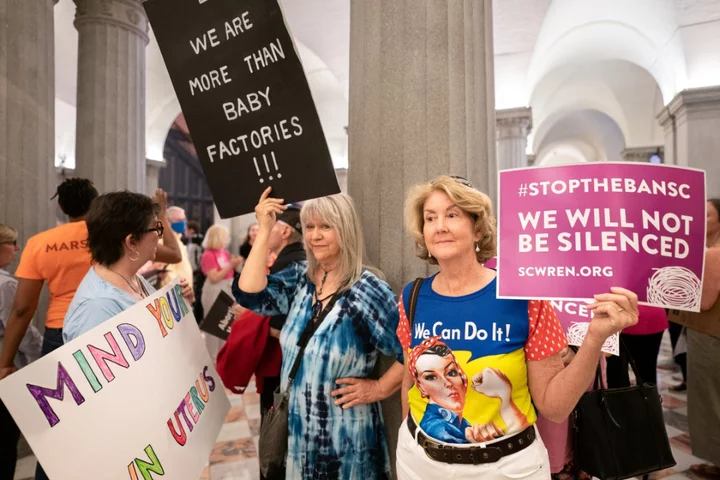
South Carolina judge halts six-week abortion ban as state Supreme Court set to review new law
The day after the state’s Republican governor signed the ban into law, a judge in South Carolina has blocked a measure outlawing abortion at roughly six weeks of pregnancy. Abortion rights advocates and civil rights groups filed a lawsuit moments after Governor Henry McMaster announced his signature on the bill. South Carolina’s latest law – which could extend the sweeping restrictions and outright bans on abortion care across the entire US South, and threaten legal access to care for millions of Americans – is nearly identical to a bill that was blocked by the state Supreme Court last year. The decision on Friday means the state’s abortion regulations revert to previous rules that allow for abortion care up until about 20 weeks after after fertilization. “The status quo should be maintained until the Supreme Court reviews its decision,” Judge Clifton Newman said. “It’s going to end up there.” His decision on 26 May comes just four months after the state’s Supreme Court permanently struck down a similar measure, which the court determined ran afoul of the state’s constitution. Restrictions on abortion care “must be reasonable and it must be meaningful in that the time frames imposed must afford a woman sufficient time to determine she is pregnant and to take reasonable steps to terminate that pregnancy,” Justice Kaye Hearn wrote in the majority opinion on 5 January. More than a dozen states, mostly in the South, have outlawed most abortions or severely restricted access within the year after the Supreme Court’s ruling in Dobbs v Jackson Women’s Health Organization, which revoked a constitutional right to abortion care that was affirmed by the decision in Roe v Wade for nearly half a century. South Carolina remains the only state south of Virginia without severe restrictions or outright bans on abortion care past the 12th week of pregnancy. Most of those states have moved to ban abortion in nearly all cases with limited or no exceptions. Last year, lawmakers in South Carolina failed to adopt an anti-abortion law that would ban nearly all abortions in the state, but a six-week ban took effect shortly after the Supreme Court’s ruling on 24 June. In a statement following the governor’s signature on the latest six-week ban, White House press secretary Karine Jean-Pierre lambasted Republican lawmakers who are “dismantling women’s rights across the South, putting their health and lives in jeopardy. “ South Carolina’s ban will cut off access to abortion for women in the state and those across the entire region for whom South Carolina is their closest option for care,” she added. This is a developing story Read More North Carolina Republicans approve 12-week abortion ban as sweeping restrictions spread across US South Senator who voted for anti-trans bill that passed by one vote admits she wasn’t paying attention From the Civil War to today's mattress sales, Memorial Day is full of contradiction GOP leaders in Kansas back off threat to sue Democratic governor over education funding DeSantis pushes past embarrassing campaign start, outlines travel schedule for early state visits
2023-05-27 00:20
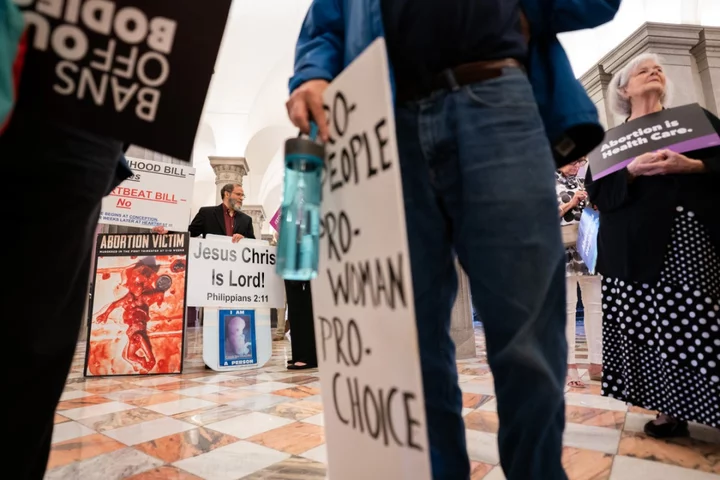
South Carolina enacts six-week abortion ban, threatening access across entire South
The state of South Carolina has outlawed abortion at roughly six weeks of pregnancy, extending the sweeping restrictions and outright bans on abortion care across the entire US South, and threatening legal access to care for millions of Americans. Republican Governor Henry McMaster signed legislation into law on 25 May after the bill’s final passage earlier this week. It goes into effect immediately. Republican lawmakers in neighbouring North Carolina recently voted to override the Democratic governor’s veto of a bill outlawing abortion at 12 weeks of pregnancy, restricting abortion access in a state that has been a haven for abortion care in the year after the US Supreme Court’s decision to reverse Roe v Wade. More than a dozen states, mostly in the South, have outlawed most abortions or severely restricted access within the year after the Supreme Court’s ruling in Dobbs v Jackson Women’s Health Organization, which revoked a constitutional right to abortion care that was affirmed for nearly half a century. Abortion rights restrictions in North Carolina and a six-week ban in South Carolina dramatically change the map for abortion access in the US, where abortions are banned in most cases from Texas to West Virginia and along the Gulf Coast, making legal access to care out of reach altogether across the Deep South. Abortion rights advocates and civil rights groups have filed a lawsuit to challenge South Carolina’s law in court. The lawsuit comes just four months after the state’s Supreme Court permanently struck down a nearly identical law, which the court determined ran afoul of the state’s constitution. Restrictions on abortion care “must be reasonable and it must be meaningful in that the time frames imposed must afford a woman sufficient time to determine she is pregnant and to take reasonable steps to terminate that pregnancy,” Justice Kaye Hearn wrote in the majority opinion on 5 January. “Six weeks is, quite simply, not a reasonable period of time for these two things to occur,” the judge added. Jenny Black, president and CEO of Planned Parenthood South Atlantic, said in a statement that South Carolina lawmakers “have once again trampled on our right to make private health care decisions, ignoring warnings from health care providers and precedent set by the state’s highest court just a few months ago.” “The decision of if, when, and how to have a child is deeply personal, and politicians making that decision for anyone else is government overreach of the highest order,” she added. “We will always fight for our patients’ ability to make their own decisions about their bodies and access the health care they need. We urge the court to take swift action to block this dangerous ban on abortion.” Governor McMcaster has pledged to defend the law in court. “We stand ready to defend this legislation against any challenges and are confident we will succeed,” he said in a statement. “The right to life must be preserved, and we will do everything we can to protect it.” Read More Mother forced to give birth to stillborn son joins lawsuit against Texas abortion ban Senator who voted for anti-trans bill that passed by one vote admits she wasn’t paying attention Twitter's launch of DeSantis' presidential bid underscores platform's rightward shift under Musk Timeline: How Georgia and South Carolina nuclear reactors ran so far off course Georgia nuclear rebirth arrives 7 years late, $17B over cost
2023-05-26 00:29
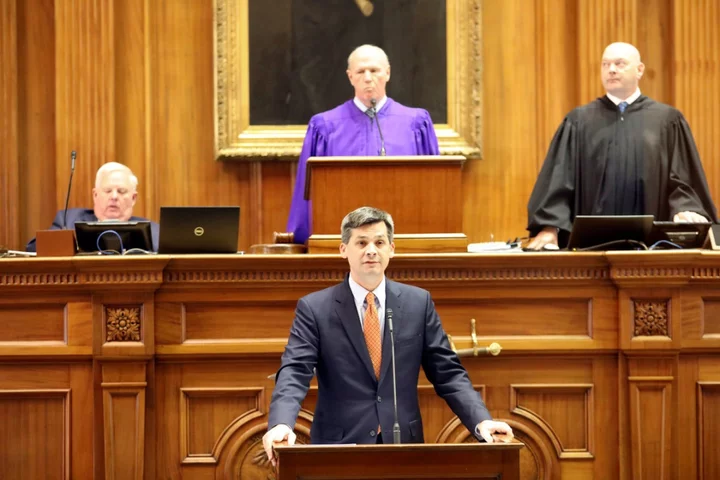
South Carolina passes six-week abortion ban over objections from all women senators
The South Carolina Senate on Tuesday passed a six-week abortion ban despite the fact that every woman senator in the chamber, Republican and Democrat, voted against it. The abortion ban will now go to the desk of Gov Henry McMaster, a Republican. If Mr McMaster does sign the bill as expected, it will be another blow to people seeking abortion care in the southeast. Nearly every other state in the region has enacted abortion bans since the fall of Roe v Wade last year. If Mr McMaster signs the ban into law, it is likely to face a legal challenge. The South Carolina Supreme Court earlier this struck down a previous version of a six-week abortion ban as unconstitutional. But that didn’t stop Republican men in the state legislature and the male Republican governor from pushing to pass a ban anyway. Six-week bans on abortion are considered near total bans because many people don’t know they’re pregnant until more than six weeks after conception. This story will be updated. Read More Haley vs. Scott: From South Carolina allies to 2024 rivals South Carolina Republicans hear pitches from 2024 candidates, reelect state party chairman Republican abortion debate inches toward resolution in South Carolina
2023-05-24 08:20
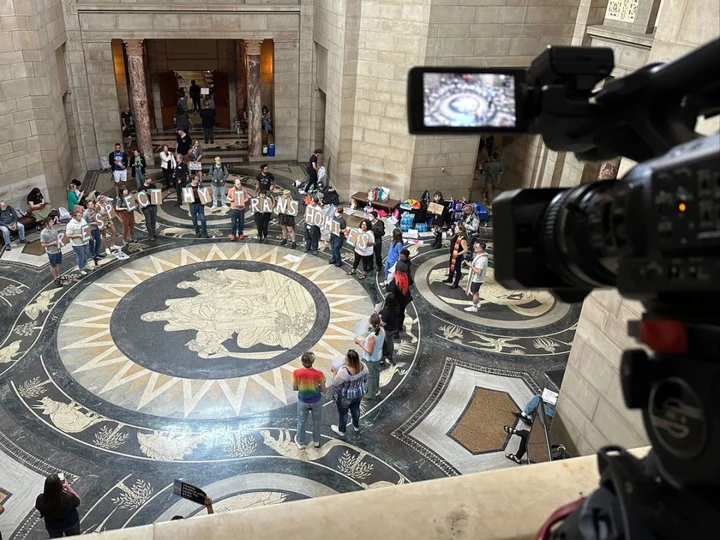
Nebraska lawmakers block photos of ‘clearly ill’ senator brought from hospital to ensure votes to ban abortion
Republican state legislators in Nebraska rammed through a contentious bill restricting abortion and transgender healthcare last week with the help of a sick colleague who had just gotten out of hospital. Julie Slama, a state GOP senator, confirmed on Friday that she had been receiving treatment for hyperemesis gravidarium, a serious complication of pregnancy, but made it to the statehouse in time to cast a decisive vote. Earlier that day, Nebraska Examiner reporter Paul Hammel had posted a picture of her looking “clearly ill” as colleagues from both sides of the debate stood around her to shield her from TV cameras. According to Hammel, Ms Slama cast the crucial 33rd vote that allowed the bill to overcome a months-long filibuster by progressive senators that had brought Nebraska’s unicameral legislature practically to a standstill. The bill, signed into law by governor Jim Pillen on Monday, bans abortion after 12 weeks of pregnancy, starting immediately, and all gender transition healthcare for trans people under the age of 19, starting in October. “I was hospitalised today with hyperemesis gravidarum,” Ms Slama tweeted on Friday evening. “Made it back in time to vote, and on the most divisive bill of the entire session. “Everyone put their differences aside and joined in a wall to keep my illness from the cameras. ‘Gratitude’ doesn’t even begin to cover it,” she said. In another tweet on Saturday morning, she said: “Do I like that [the photo] is out there? No. But sometimes in government, private battles end up public. I shared to address questions about my health, but also to give my colleagues credit for their kindness, especially Machaela Cavanaugh.” That last name was notable because Ms Cavanaugh, along with her progressive colleague Megan Hunt, has been one of the public faces of the 12-week filibuster that had blocked almost all legislation in this session so far. Ms Cavanaugh has described the trans healthcare ban as a stepping stone to “genocide”, telling The Independent earlier this month that it was aimed at “exterminating ‘transgender’ from existence”. Nevertheless, she was among the senators who stood in front of Ms Slama to block her from view, and later tweeted at Hammel to “delete this please”. Another Republican senator, Lou Ann Linehan, had complained that she had to miss her grandson’s preschool graduation ceremony because of the filibuster and the prolonged debate it created. Ms Hunt, who has a trans child, shot back: “If you want to see your grandson graduate from preschool, you should do that. Instead, you are here to drag out this session because you won’t come off this bill that hurts my son. You hate him more than you love your own family.” Hammel defended his decision to tweet the photo, saying: “No more public place than floor of [the] Nebraska legislature.”
2023-05-23 12:27
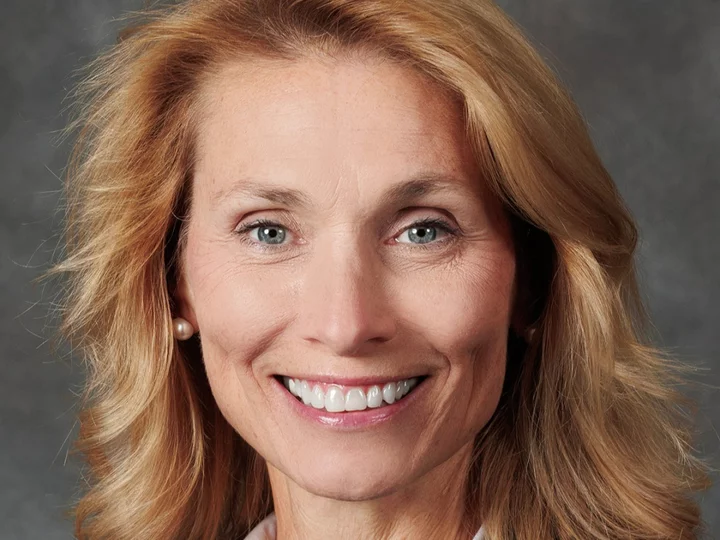
Nebraska GOP senator who voted for anti-trans and anti-abortion bill that passed by one vote admits she didn’t pay attention to the issue
A Nebraska Republican state senator who voted for a combined anti-trans and anti-abortion bill that passed by one vote in the legislature has admitted that she didn’t pay attention to the issue. State Senator Christy Armendariz represents the 18th District in the state. Writing for New York magazine, journalist Lila Shapiro said that the senator “led me to a bench in an empty hallway” to say that she “found it puzzling that a reporter from New York would come all the way to Nebraska to cover this affair”. “I don’t watch the news or get the newspaper,” she told the magazine. “Is there anything going on I should be aware of?” The writer told Ms Armendariz that other states have passed other similar bills restricting trans and women’s reproductive rights and that an appeals court on the federal level in the Nebraska circuit had ruled that one of them was unconstitutional. “So is it a big widespread thing?” she asked the writer, adding that regular Nebraska residents were unaware of the issue. “I knocked doors for a year, and nobody brought this up,” the senator said, adding that she wished that the legislation had never been brought to the floor. For three months, a group of lawmakers in the state has ground nearly all legislative business in the state to a halt, grabbing the nation’s attention with a remarkable filibuster to stifle a bill that would end gender-affirming care for young transgender people. Late Tuesday 16 May, Republican lawmakers broke through, advancing a bill that not only bans gender-affirming care for trans people under 19 years old but also tacks on an amendment to outlaw abortion after 10 weeks of pregnancy and hands the state’s GOP-appointed medical officer the authority to set the rules for affirming care for trans youth. Hundreds of protesters filled the capital in Lincoln, standing outside the doors and in the gallery above lawmakers while chanting “one more vote to save our lives”; only one senator would have had to defect from supporters of the bill to kill the legislation. The vote – on the 78th day of a 90-day session – followed a series of manoeuvres that opponents argued were bending and breaking the rules of the state legislature to hammer through the legislation and avert the filibuster, which would allow opponents to occupy their allotted time to speak the bill to death. “What you are attempting to do today is the lowest of the absolute lows,” state Senator Machaela Cavanaugh, who spearheaded the filibuster, told Republican lawmakers. “You literally have to cheat at every moment of this debate in every possible way … You are allowing it to happen,” she added. “You do literally have blood on your hands, and if you vote for it, you will have buckets.” State Senator Megan Hunt, the first openly LGBT+ member of the state legislature and the mother of a trans child, lambasted lawmakers for their “escape routes” from the capitol to avoid facing protesters. “If you can’t go out and face them, you are not worthy,” she said. “Your legacy is filth.” Protesters surrounded the state capitol chambers in Lincoln on 19 May chanting “keep your bans off our bodies” and “save our lives” as lawmakers made their final round of votes on the bill, which passed 33-15, according to Reuters. The bill reached the exact number of votes needed to pass. Republican Governor Jim Pillen signed it into law on Monday. Before signing the bill, Mr Pillen said, “We are working to inspire Nebraskans to get in the game so that abortion is simply unthinkable in the state of Nebraska,” according to WOWT. He added that it was “an extremely historic day for Nebraska. It’s a day where it’s really simple: We’re standing up to protect our kids so our state has a bigger and brighter future. LB574 is the most significant win for [the] social conservative agenda that over a generation has seen in Nebraska. I think that’s something we need to clap and shout about”. At a show in Nebraska hours after the vote on Friday night, the artist Lizzo lambasted the legislation from the stage. “It really breaks my heart that there are young people growing up in a world that doesn’t protect them,” she said. “Don’t let anyone tell you who you are. ... These laws are not real. You are what’s real, and you deserve to be protected.” Ari Kohen, a political science professor at the University of Nebraska–Lincoln, tweeted: “Hat tip to Senator Armendariz, who says she doesn’t know anything about the issue, doesn’t pay attention to current events, and wishes the bill she voted for hadn’t been introduced. It passed by 1 vote.” “These are the people who devoted an entire legislative session to taking away people’s rights in the face of massive opposition from experts and ordinary citizens. They openly admit that none of their constituents mentioned this issue to them and they don’t know much about it,” he added. “We have a handful of legislators who care enough to listen and learn. And then we have the majority, who seem not to know or care what they’re doing as long as it feels right to them and they have the votes to do it. Awful.” Journalist and author Charles Jaco tweeted that a similar assessment could be made regarding the Missouri legislature. “You have a handful of lawmakers who are serious, substantial people. The rest are various shades of know-nothing religious fanatics, grifters, and bigoted buffoons,” he tweeted. The Independent has reached out to Ms Armendariz for comment. Read More Nebraska governor to sign 12-week abortion ban, limits on gender-affirming care for minors Lizzo blasts Nebraska bill banning abortion access and gender-affirming care: ‘You deserve to be protected’ Here are the restrictions on transgender people that are moving forward in US states Nebraska governor to sign 12-week abortion ban, limits on gender-affirming care for minors Lizzo blasts Nebraska bill banning abortion access and gender-affirming care Nebraska expected to pass 12-week abortion ban, restrictions on gender-affirming care
2023-05-23 03:15
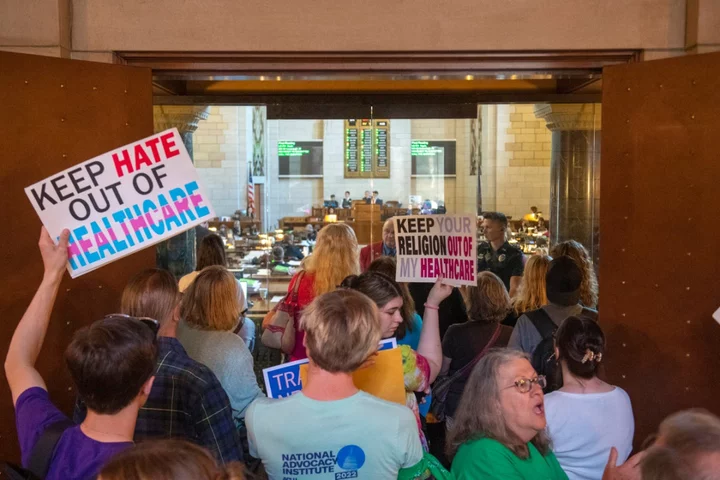
Lizzo blasts Nebraska bill banning abortion access and gender-affirming care: ‘You deserve to be protected’
After an epic filibuster that blocked legislation for nearly three months, state lawmakers in Nebraska approved a Republican-led ban on abortion care at roughly 10 weeks of pregnancy, combined with a bill that bans gender-affirming care for transgender youth. The extraordinary maneuvers in the smallest legislative body in the country have drawn national attention, as lawmakers across the United States take up a wave of bills targeting abortion rights and LGBT+ people. Protesters surrounded the state capitol chambers in Lincoln on 19 May chanting “keep your bans off our bodies” and “save our lives” as lawmakers made their final round of votes on the bill, which now heads to the desk of Republican Governor Jim Pillen, who intends to sign it into law. At least six protesters were arrested. At a show in Nebraska hours after the vote on Friday night, the artist Lizzo lambasted the legislation from the stage. “It really breaks my heart that there are young people growing up in a world that doesn’t protect them,” she said. “Don’t let anyone tell you who you are. ... These laws are not real. You are what’s real, and you deserve to be protected.” LGBT+ advocates and abortion rights groups have also signalled they are prepared to sue the state to block the measure once it is signed into law. “To be clear, we refuse to accept this as our new normal,” according to a statement from ACLU of Nebraska interim director Mindy Rush Chipman. “This vote will not be the final word. We are actively exploring our options to address the harm of this extreme legislation, and that work will have our team’s full focus. This is not over, not by a long shot.” The legislation directs the state’s chief medical officer – appointed by the Republican governor – to draft the rules for how young trans people and their families can access nonsurgical affirming healthcare. It also bans abortion at 12 weeks gestational age, or roughly nine or 10 weeks, from fertilization. The bill’s passage comes roughly three months after a group of LGBT+ and abortion rights-supporting lawmakers launched a filibuster to block any legislation from advancing in the state’s unicameral legislature until a measure banning gender-affirming care was withdrawn, or until time ran out in the 90-day session. Last month, the filibuster successfully blocked a measure from anti-abortion lawmakers to ban abortion at roughly six weeks of pregnancy. Attaching another anti-abortion measure to the gender-affirming care ban gave proponents of the bill a second chance of advancing both. Opponents forcefully opposed the inclusion of an abortion ban in a bill targeting gender-affirming care, two wholly separate issues combined into one, “but you all don’t care”, state Sen. Machaela Cavanaugh, who launched the filibuster effort in February, told lawmakers this week. “I wish the people in here cared about what they’re doing to people, but they don’t,” she said during debate. “Why are you doing this to our kids? Why are you doing this to our doctors? … Please stop.” State Sen. Megan Hunt, the first openly LGBT+ person elected to the state’s legislature, lambasted a Republican colleague who complained that she was missing her grandson graduate from preschool so she could vote on the bill. Ms Hunt, who changed her party affiliation from Democratic to Independent during this legislative session, also is the mother of a 12-year-old trans son. “If you want to see your grandson graduate from preschool, you should do that,” Ms Hunt told Republican state Sen Lou Ann Linehan. “Instead, you are here to drag out this session because you won’t come off this bill that hurts my son,” she said on 18 May. “You hate him more than you love your own family. And that’s why you’re here. … I am not asking you to sit here through late nights to vote on these bills that we’re dragging out. I’m asking you to love your family more than you hate mine.” She also eviscerated another lawmaker, state Sen. Ray Aguilar, who took issue with being labelled anti-LGBT+ because he said he has a gay daughter. Mr Aguilar voted in favour of the legislation. “You’re part of the problem, that is the scourge of hate and discrimination that your party is standing on in the middle of an ocean like it’s the most important thing in the world to them,” Ms Hunt said. “Your proximity to gayness does not make that OK.” More than a dozen states, mostly in the South, have severely restricted or effectively outlawed abortion in the year after the US Supreme Court struck down Roe v Wade, which affirmed a constitutional right to abortion access. In this past week, lawmakers in North Carolina and South Carolina approved abortion bans, extending restrictions on abortion care from Texas and Oklahaoma through the entire Gulf Coast and throughout the southeast. Nebraska’s legislation also joins a nationwide campaign that has seen hundreds of bills aimed at LGBT+ people, particularly at young trans people, filed in nearly every state within the last two years. At least 15 states have enacted laws or policies banning gender-affirming care for young trans people, and more than a dozen others are considering similar measures. Court injunctions have blocked bans from going into effect in three states. More than half of all trans youth in the US between the ages of 13 and 17 are at risk of losing access to what major health organisations consider age-appropriate, medically necessary and potentially life-saving affirming healthcare in their home state, according to the Human Rights Campaign. The onslaught of legislation and volatile political debate surrounding the bills have also negatively impacted the mental health of an overwhelming majority of young trans and nonbinary people, according to polling from The Trevor Project and Morning Consult. A separate survey from The Trevor Project found that 41 per cent of trans and nonbinary youth have seriously considered attempting suicide over the last year. If you are based in the US and seek LGBT+ affirming mental health support, resources are available from Trans Lifeline (877-565-8860) and the LGBT Hotline (888-843-4564), as well as The Trevor Project (866-488-7386 or text START to 678-678). If you are experiencing feelings of distress, or are struggling to cope, you can speak to the Samaritans, in confidence, on 116 123 (UK and ROI), email jo@samaritans.org, or visit the Samaritans website to find details of your nearest branch. If you are based in the US, and you or someone you know needs mental health assistance right now, call or text the 988 Suicide & Crisis Lifeline at 988. This is a free, confidential crisis hotline that is available to everyone 24 hours a day, seven days a week. If you are in another country, you can go to www.befrienders.org to find a helpline near you. Read More How one North Carolina lawmaker's defection from the Democratic Party upended abortion protections Trans rights groups pledge Texas lawsuit over gender-affirming care ban: ‘Anti-science, discriminatory fear-mongering’ Republican-appointed federal judges grill FDA in mifepristone hearing Anti-abortion laws harm patients facing dangerous and life-threatening complications, report finds
2023-05-21 02:25
